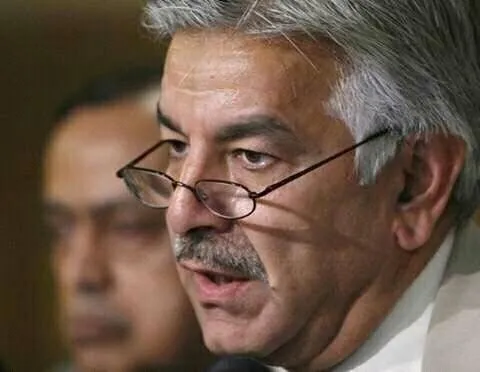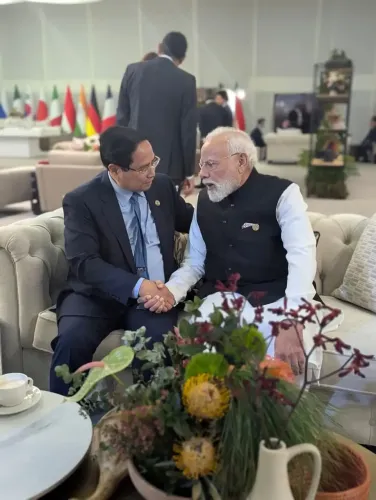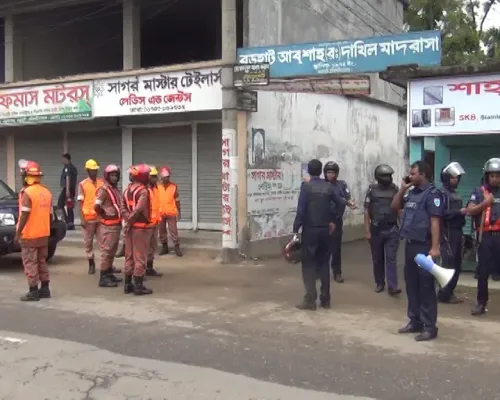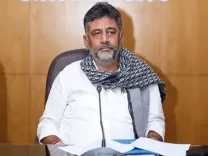Can Tensions be Resolved if India Withdraws? Insights from Pak Defence Minister Khawaja Asif

Synopsis
Key Takeaways
- Pakistan demands a withdrawal from India to reduce tensions.
- Operation Sindoor has heightened military confrontations.
- Emergency measures have been implemented across Pakistan.
- Both nations are on edge, fearing a potential conflict.
- Global powers are urging restraint from both sides.
Islamabad, May 7 (NationPress) Pakistan's Defence Minister Khawaja Asif stated that the ongoing tensions and heightened confrontations between India and Pakistan can only cease if New Delhi retracts its assertive stance. These comments followed India's initiation of 'Operation Sindoor', which targeted nine locations in Pakistan and Pakistan-occupied Kashmir (PoK), aimed at alleged terrorist hideouts. Pakistan asserted that it has responded to Indian airstrikes with counter-offensive actions along the Line of Control (LoC).
In an interview with Bloomberg, Asif emphasized that Pakistan reserves the right to counter any aggression from India, maintaining that Islamabad is merely reacting to Indian assaults and should not be labeled as the aggressor.
Asif remarked, “This has been initiated by India. If India is willing to retreat, we will certainly diffuse this tension.”
“As long as we are under attack, we must respond. We are compelled to defend ourselves. However, if India steps back, we will de-escalate this tension,” he added.
Pakistan's Inter-Services Public Relations (ISPR) Director General Lt. General Ahmed Sharif Chaudhry reported that at least 26 individuals lost their lives and 46 others sustained injuries due to the airstrikes carried out by New Delhi, which were claimed to target terror camps in Pakistan-occupied Kashmir and the Punjab province.
The nation is currently on a ‘red alert’, with government hospitals prepared for emergencies; airspace for all domestic and international flights has been closed for a minimum of 24 to 36 hours; educational institutions in Islamabad and the Punjab province are shut; and all forces are on standby following the Indian airstrikes targeting various terror hideouts.
The strikes have unsettled locals, who fear the possibility of a full-scale conflict between the two nations.
Operations were conducted at six different sites within Pakistan, including Masjid SubhanAllah—the presumed hideout of Jaish-e-Mohammed (JeM) leader Maulana Masood Azhar located in Ahmedpur Sharqia area of Bahawalpur city in South Punjab.
Additionally, multiple strikes targeted other regions, such as Muridke, the alleged headquarters of Lashkar-e-Taiba (LeT) and Jamaat ud Dawa (JuD) leader Hafiz Saeed, along with other locations in Muzaffarabad, Kotli, and Bagh cities.
Pakistan's Prime Minister Shehbaz Sharif is set to address the nation on Wednesday afternoon and has convened an emergency National Security Committee (NSC) meeting at the Prime Minister's House to evaluate the current security landscape and strategize future actions against India.
This significant meeting aims to devise policy and deliberate on potential interventions by global powers, including the United States, which has urged both nations to exercise restraint and alleviate the rapidly escalating tensions between these two nuclear-armed countries.









